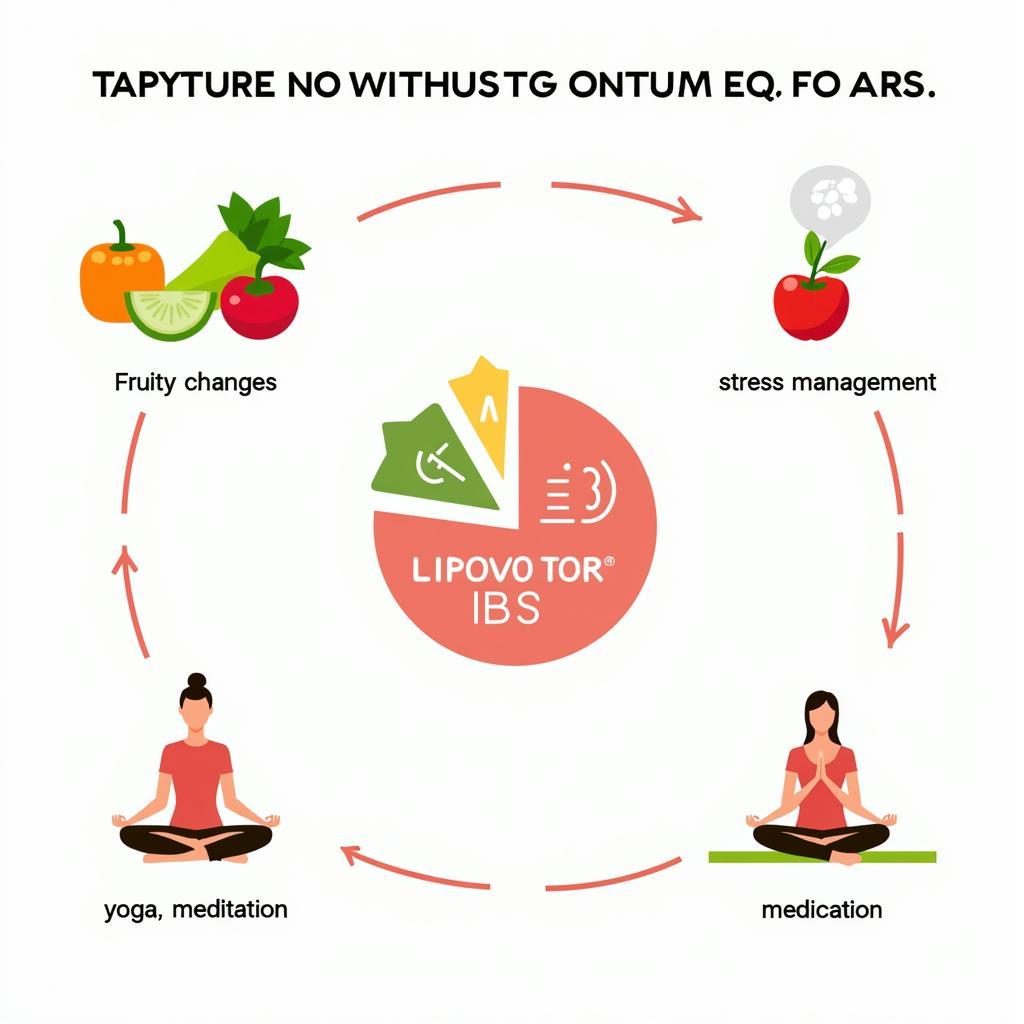Irritable bowel syndrome (IBS) can significantly impact daily life, affecting the large intestine and causing discomfort. This article explores IBS in detail, discussing its symptoms, causes, diagnosis, and treatment options.
What is Irritable Bowel Syndrome (IBS)?
IBS is a chronic gastrointestinal disorder affecting the large intestine. Unlike inflammatory bowel diseases like Crohn’s disease or ulcerative colitis, IBS doesn’t cause inflammation or changes in bowel tissue. It’s characterized by a group of symptoms that occur together, including abdominal pain, cramping, bloating, gas, changes in bowel habits (constipation, diarrhea, or both), and mucus in the stool. While IBS can be uncomfortable and disruptive, it doesn’t permanently harm the digestive system. It’s a functional disorder, meaning that the digestive system looks normal but doesn’t function as it should.
Symptoms and Diagnosis of Irritable Bowel Syndrome
The symptoms of IBS can vary from person to person and may change over time. Some people experience mild symptoms, while others have more severe discomfort. Common symptoms include:
- Abdominal pain and cramping
- Bloating and gas
- Changes in bowel habits (constipation, diarrhea, or alternating between the two)
- Mucus in the stool
Diagnosing IBS involves a combination of physical exams, medical history, and ruling out other conditions. There is no single test for IBS. Doctors typically use the Rome IV criteria, which include recurrent abdominal pain associated with changes in bowel frequency or form. If you suspect you have IBS, consulting a doctor is crucial for accurate diagnosis and personalized cách trị hội chứng ruột kích thích.
Causes and Triggers of Irritable Bowel Syndrome
The exact causes of IBS are still unknown, but several factors are thought to play a role. These include:
- Gut-brain axis dysfunction: The communication between the brain and the gut may be disrupted in people with IBS.
- Gastrointestinal motility problems: The muscles in the intestines may contract too slowly or too quickly, leading to changes in bowel habits.
- Visceral hypersensitivity: People with IBS may be more sensitive to pain and discomfort in the abdomen.
- Infection or inflammation: Some people develop IBS after a gastrointestinal infection.
- Diet and lifestyle: Certain foods and stress can trigger IBS symptoms.
Dr. Nguyen Thi Hong, a gastroenterologist, explains: “While the cause of IBS is multifactorial, we know certain triggers can exacerbate symptoms. Identifying and managing these triggers, such as stress, diet, and sleep disruption, is essential for effective treatment.”
Treating Irritable Bowel Syndrome (IBS)
 Hình ảnh minh họa các phương pháp điều trị hội chứng ruột kích thích
Hình ảnh minh họa các phương pháp điều trị hội chứng ruột kích thích
Effective IBS treatment often involves a combination of lifestyle changes and medications. Dietary modifications, stress management techniques, and medication like thuốc hội chứng ruột kích thích can help control symptoms. Learning about bé thích ăn gì can be relevant in managing dietary triggers. Some people find relief through alternative therapies, such as acupuncture or herbal remedies, although more research is needed to confirm their effectiveness. You might find useful resources on thực dưỡng thầy thích tuệ hải for dietary information. Understanding what gà thích ăn cỏ gì can surprisingly provide insights into digestive processes in animals, which can be helpful for understanding the complexity of digestion in humans.
Dr. Pham Minh Tuan, a leading researcher in gut health, states, “Living with IBS requires a proactive approach. Patients who actively participate in their care, including tracking symptoms and communicating effectively with their healthcare team, often achieve better outcomes.”
Conclusion
Irritable bowel syndrome (IBS) is a challenging but manageable condition. While there is no cure, effective strategies are available to control symptoms and improve quality of life. By understanding the symptoms, causes, and treatment options for IBS, individuals can take proactive steps to manage their condition and live comfortably.
FAQ
- Is IBS a serious disease?
- Can IBS be cured?
- What foods should I avoid if I have IBS?
- What are the common triggers of IBS?
- How is IBS diagnosed?
- What are the treatment options for IBS?
- Can stress worsen IBS symptoms?
Scenarios
- Scenario 1: Frequent abdominal pain and bloating after meals.
- Scenario 2: Alternating between constipation and diarrhea.
- Scenario 3: Experiencing IBS symptoms during stressful periods.
Further Reading
- Explore articles on specific IBS triggers.
- Read more about the gut-brain connection.
- Find resources on managing stress and anxiety.
Need support? Contact us 24/7: Phone: 0915063086, Email: [email protected] or visit us at LK 364 DV 08, Khu đô thị Mậu Lương, Hà Đông, Hà Nội 12121, Vietnam.